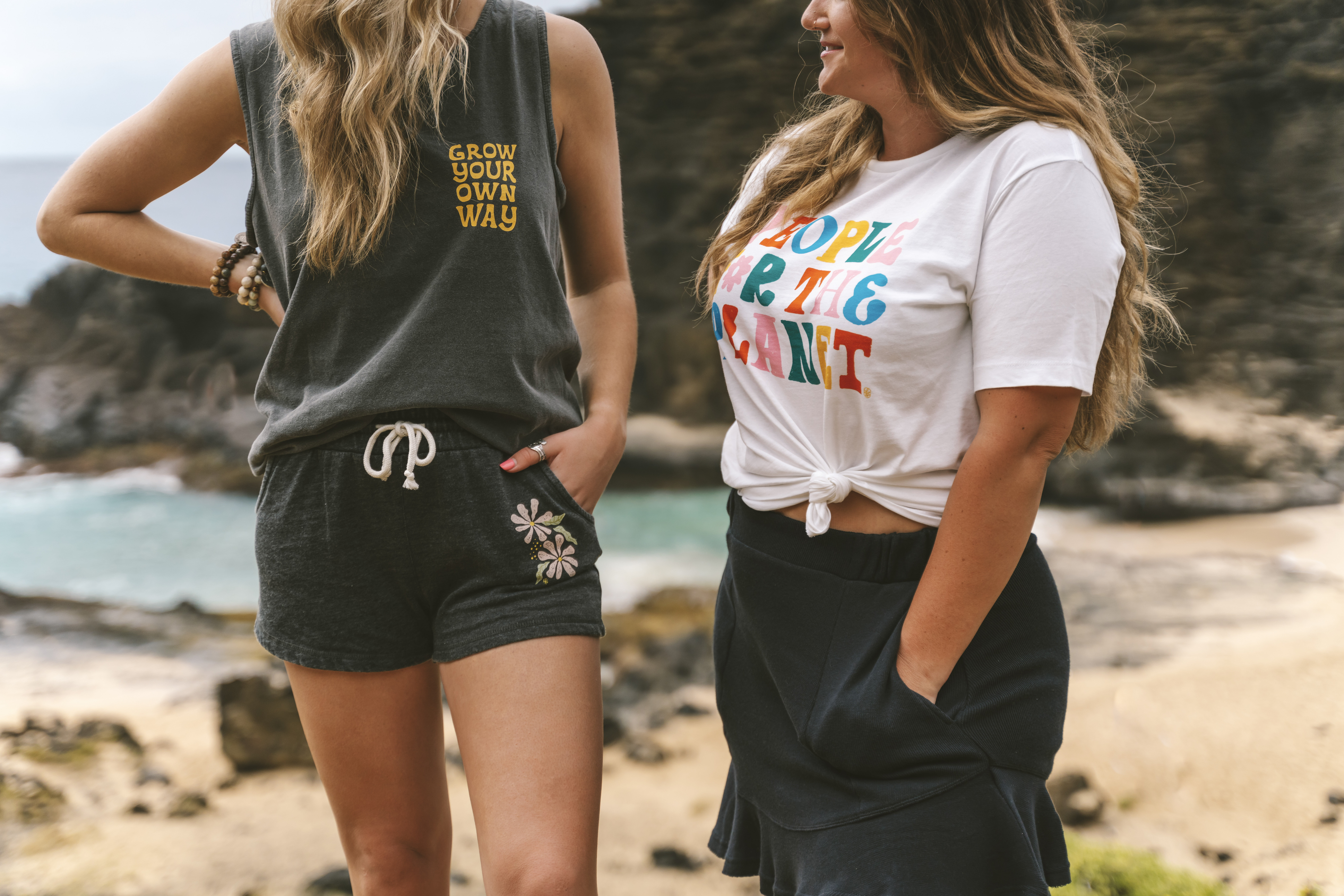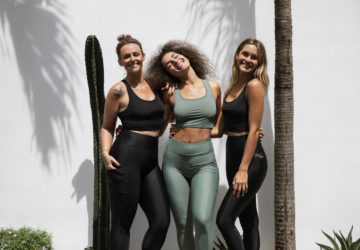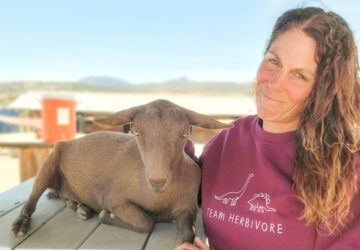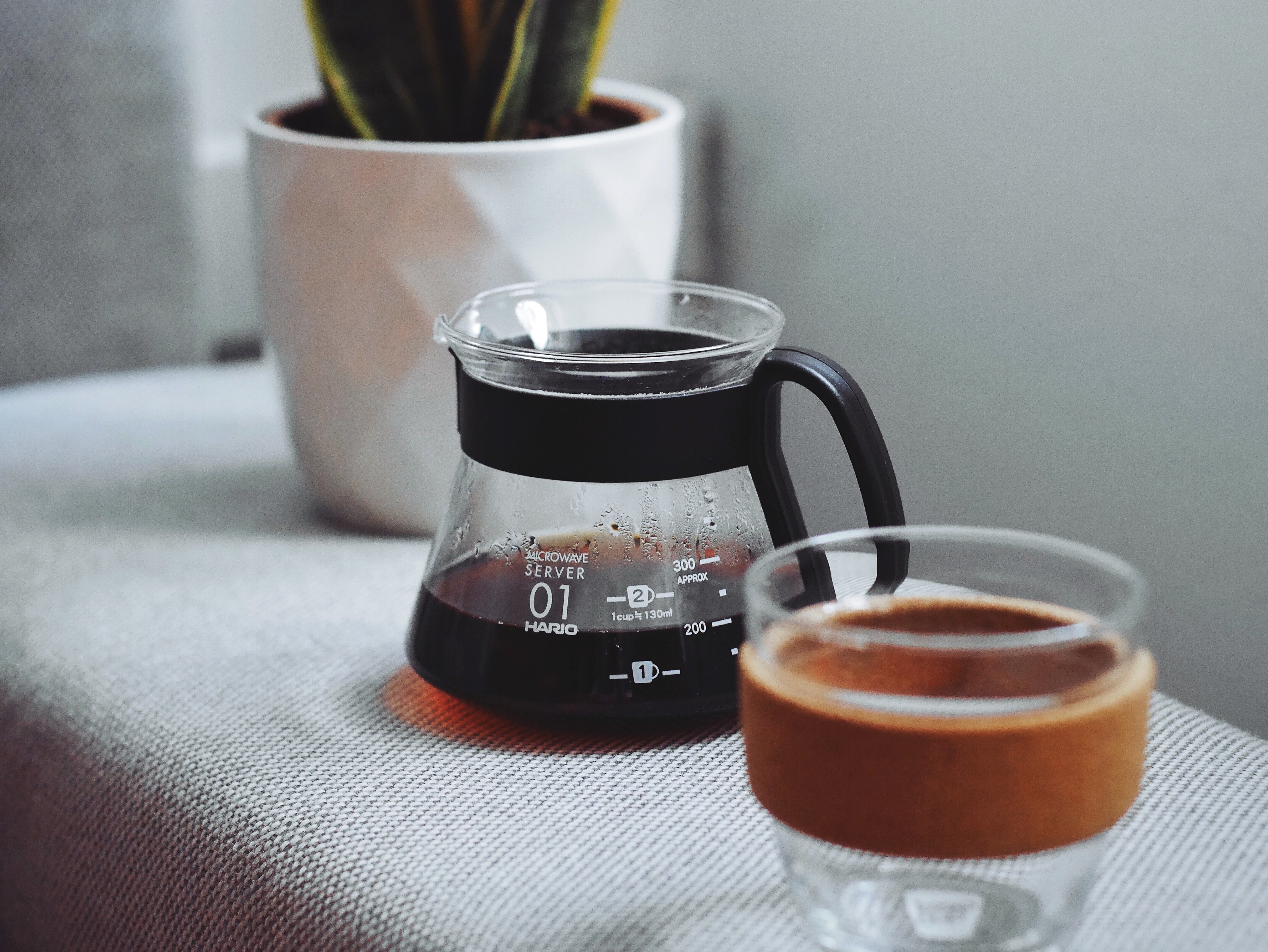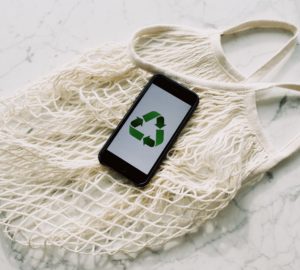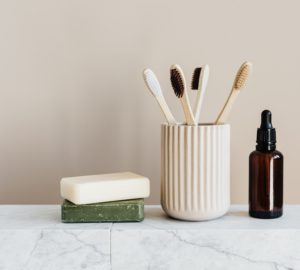Have you been thinking of adopting a more sustainable lifestyle in 2019?
It’s a lot easier than you think!
To help you start, we’re counting down the 11 easiest household items to swap to be more eco-friendly.
1. Plastic grocery bags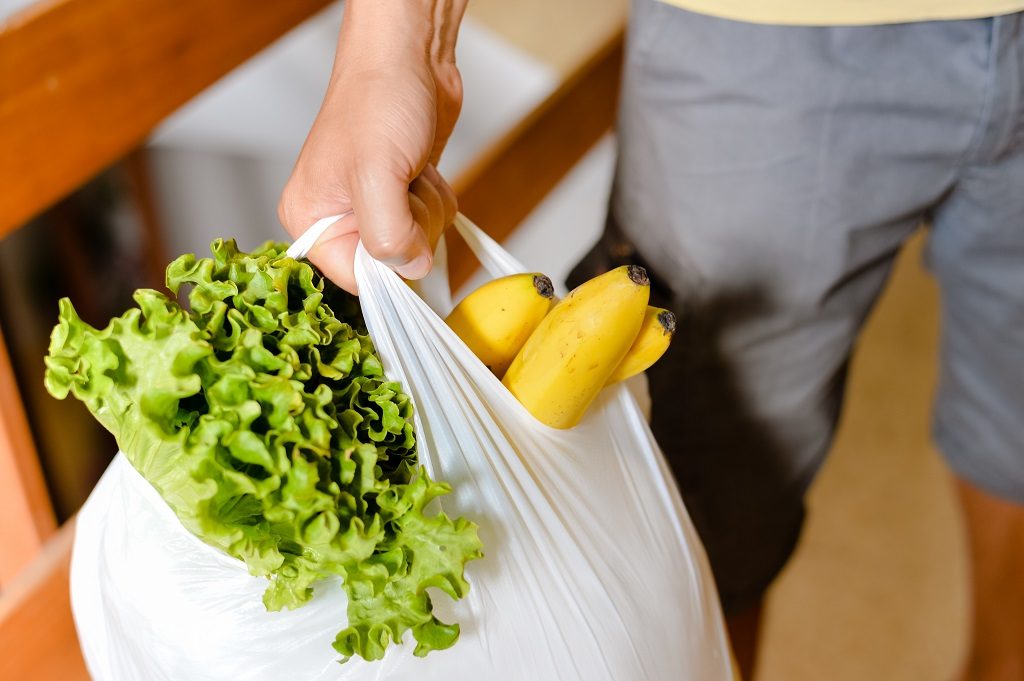
Plastic bags are notoriously harmful to the environment – and every year Americans use one hundred billion of them!! And because they’re made using petroleum, they’ll last 1,000 years, slowly breaking down, seeping chemicals into the soil and water.
Use reusable totes instead
View this post on InstagramA post shared by Wholesome Culture (@wholesomeculture) on
Switching to a reusable bag like this awesome “Protect our home” Wholesome Culture tote is a good way to be more eco-friendly!
2. Coffee pods and to-go cups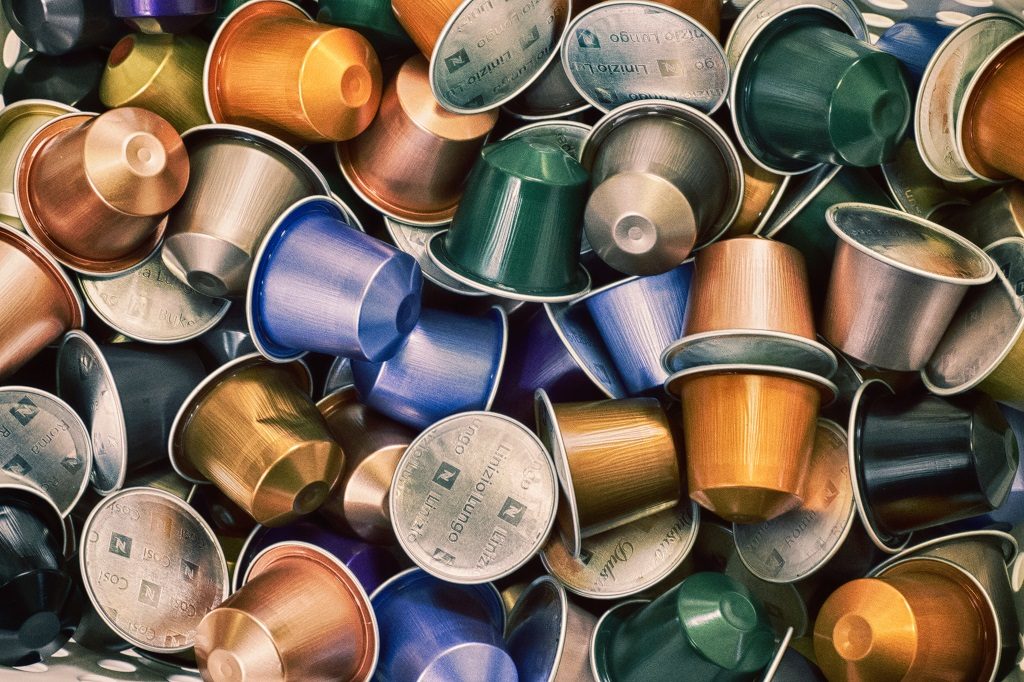
Let’s face it: most of us need that morning coffee!
Whether you use your trusty Keurig or rely on your local Starbucks, a daily cup produces a lot of waste.
While plastic coffee pods are convenient, like plastic bags they’re made using petroleum and will spend 1,000 years in a landfill polluting soil and water. What’s more, even if you recycle the plastic cups, the foil on top is not recyclable.
Use reusable single serve coffee filters and mugs instead
Invest in a reusable coffee mug (check out our 100% organic and biodegradable, ‘Live Gently Upon This Earth’ reusable coffee mug), and get reusable cups like these Ekobrew Classic Reusable Filter for your coffee machine!
View this post on InstagramA post shared by ekobrew (@ekobrew) on
View this post on InstagramA post shared by Wholesome Culture (@wholesomeculture) on
3. Plastic straws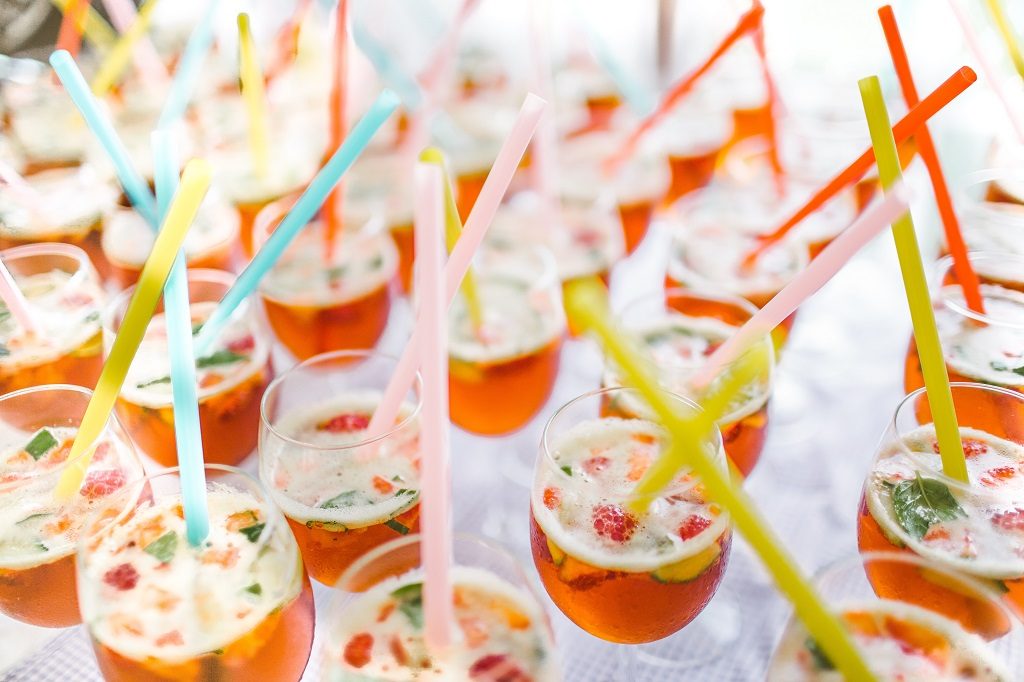
Plastic straws are becoming a thing of the past and for good reason; they end up in the ocean where they kill wildlife such as turtles!
Use reusable bamboo straws instead
Get on the ban plastic straws bandwagon with our “Be the change” reusable bamboo straw that comes with a stainless steel cleaning brush!
View this post on InstagramA post shared by Wholesome Culture (@wholesomeculture) on
4. Toothbrushes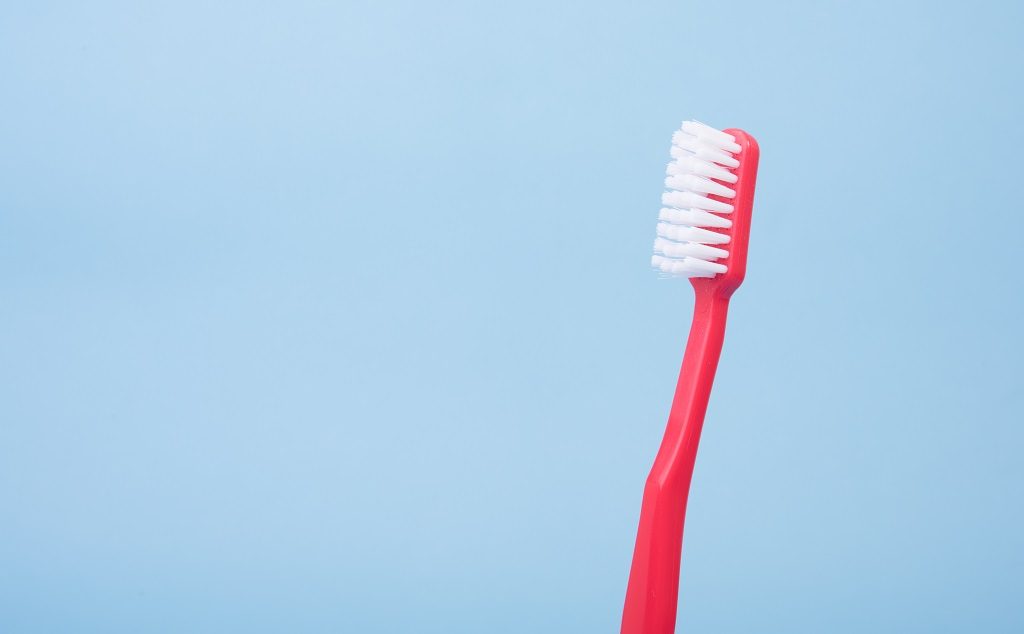
Did you know that 1 billion toothbrushes are thrown out in the US every year? Many of these end up in waterways and oceans and threaten wildlife and their habitats.
Use biodegradable toothbrushes instead
Want to be eco-friendly and have fresh breath? Give these cute biodegradable toothbrushes a try!
View this post on InstagramA post shared by Giving Brush (@thegivingbrush) on
5. Regular incandescent light bulbs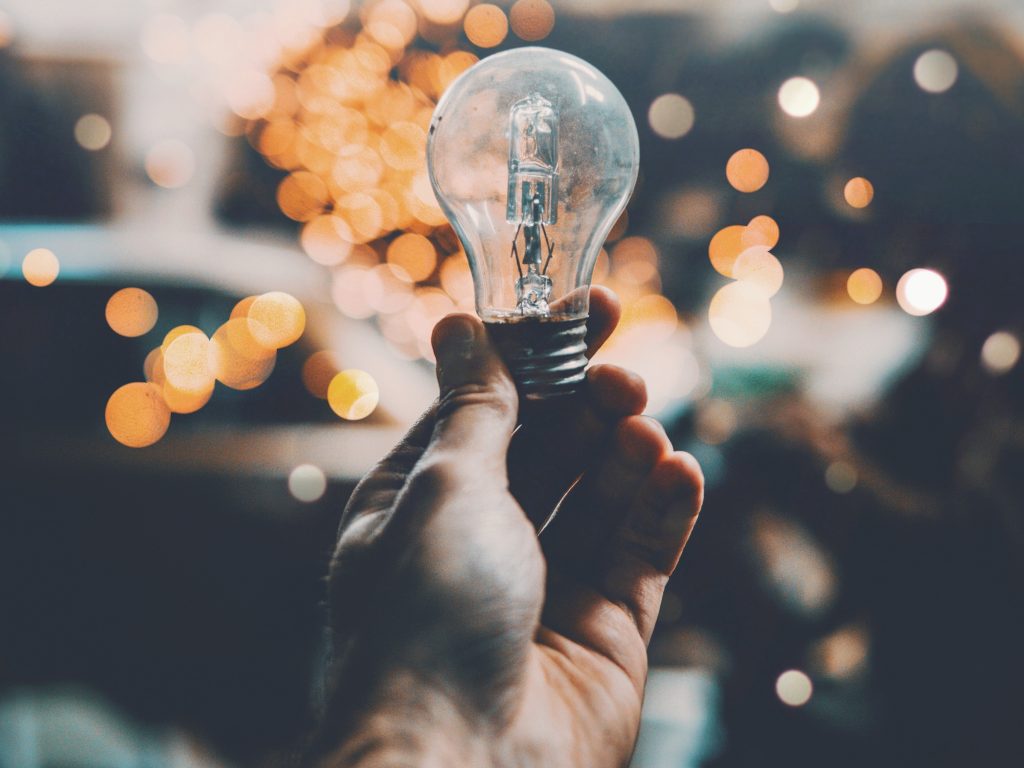
Regular light bulbs are incredibly wasteful – they release 90% of their energy as heat!
Choose LED bulbs instead
According to the US Department of Energy, LED lighting uses 75 percent less energy than regular incandescent light bulbs.
6. Household cleaning products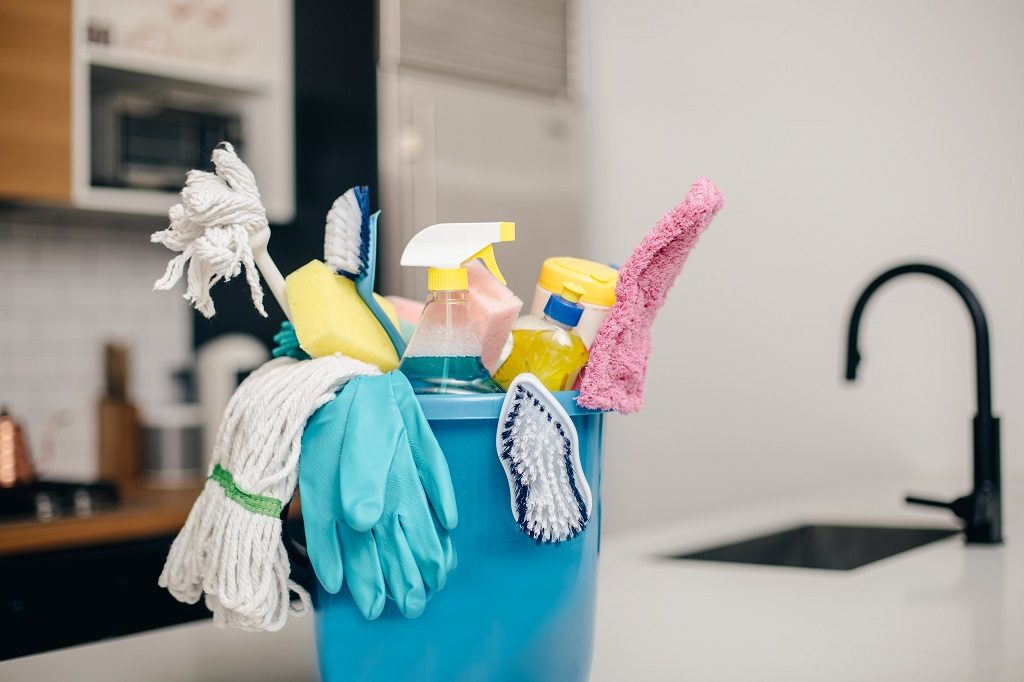
Typical cleaning products contain harsh chemicals that end up damaging the environment when they’re released into the air or end up in water. For example, according to the EPA, many cleaners contain a surfactant that causes reproductive harm to wildlife living in polluted water. Scary, right?!?!
Use homemade cleaning products instead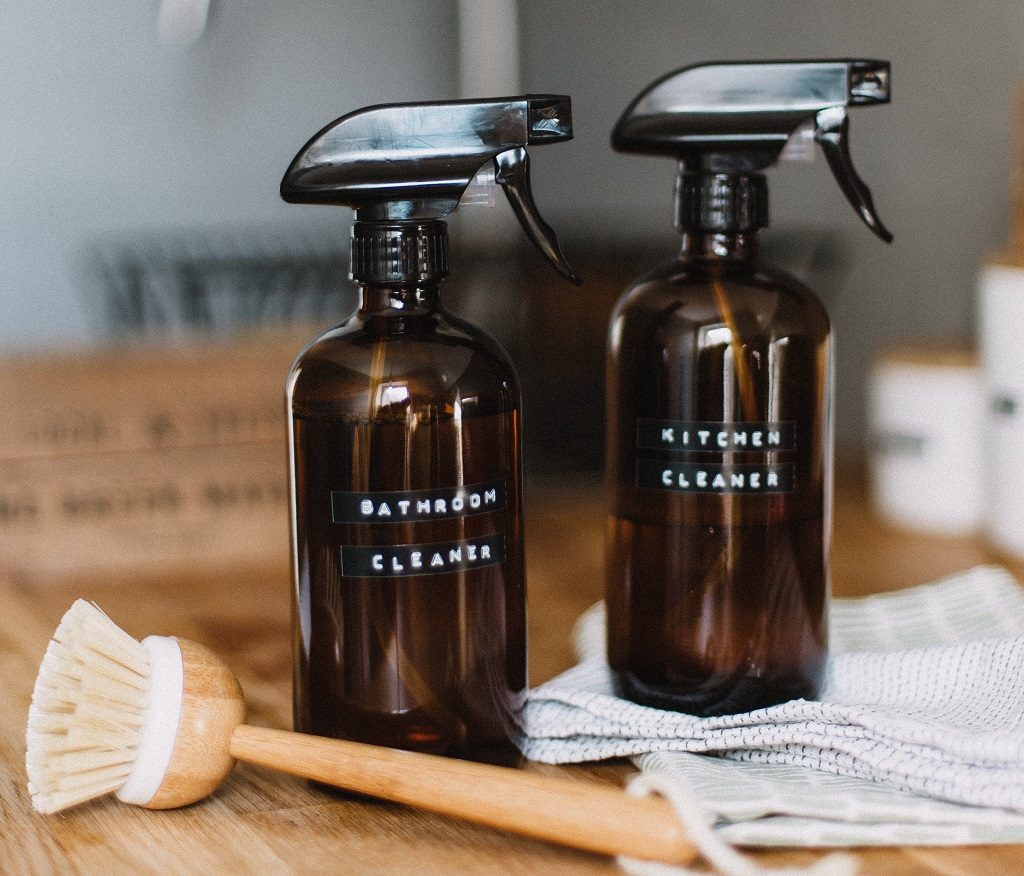
Make your own environmentally friendly cleaning products with vinegar, water, and some essential oils. Need a little inspiration? Here’s a list of 66 natural ingredients you can use to make homemade cleaning solutions.
Prefer purchasing over making your own? Check out this list of the 17 best natural cleaning products.
7. Laundry detergent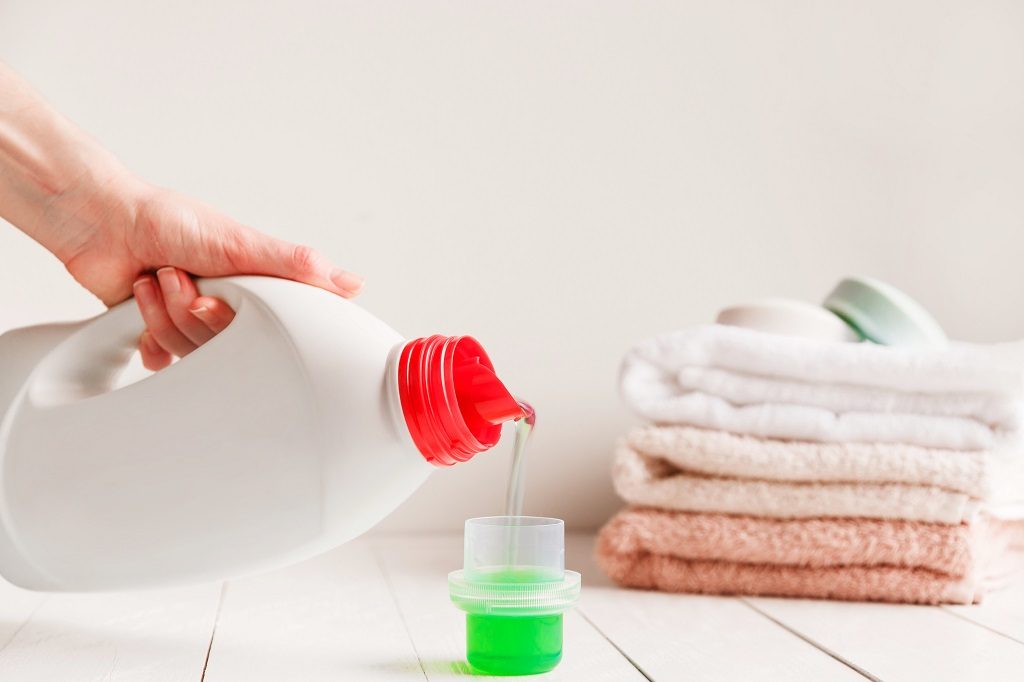
Regular laundry detergents are often filled with chemicals that end up in our waterways, damaging habitats and harming wildlife.
Choose natural laundry detergent instead
Natural laundry detergent brands such as Attitude are a better option for the environment and your health. They contain no parabens or harmful preservatives and are completely biodegradable.
View this post on InstagramA post shared by ATTITUDE (@attitude_living) on
8. Plastic food wraps
It’s time to ditch plastic wrap! Single use plastic items end up in the oceans or in landfills where they can be swept away by the wind.
Choose reusable food wraps instead
Toxic free, biodegradable, and lasting up to a year with proper care, reusable food wraps are a sound investment if you want to be more eco-friendly.
Store your left-overs with these Vegan Reusable food wraps. 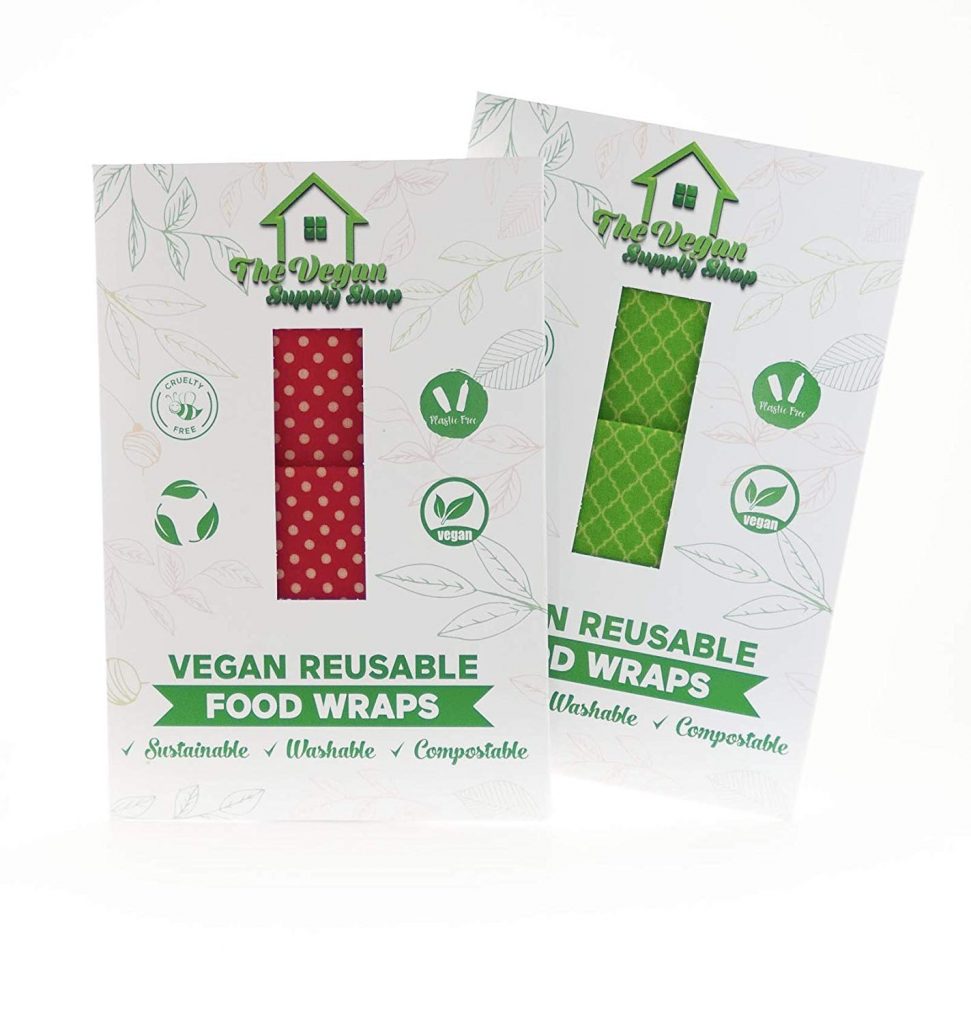
9. Plastic water bottles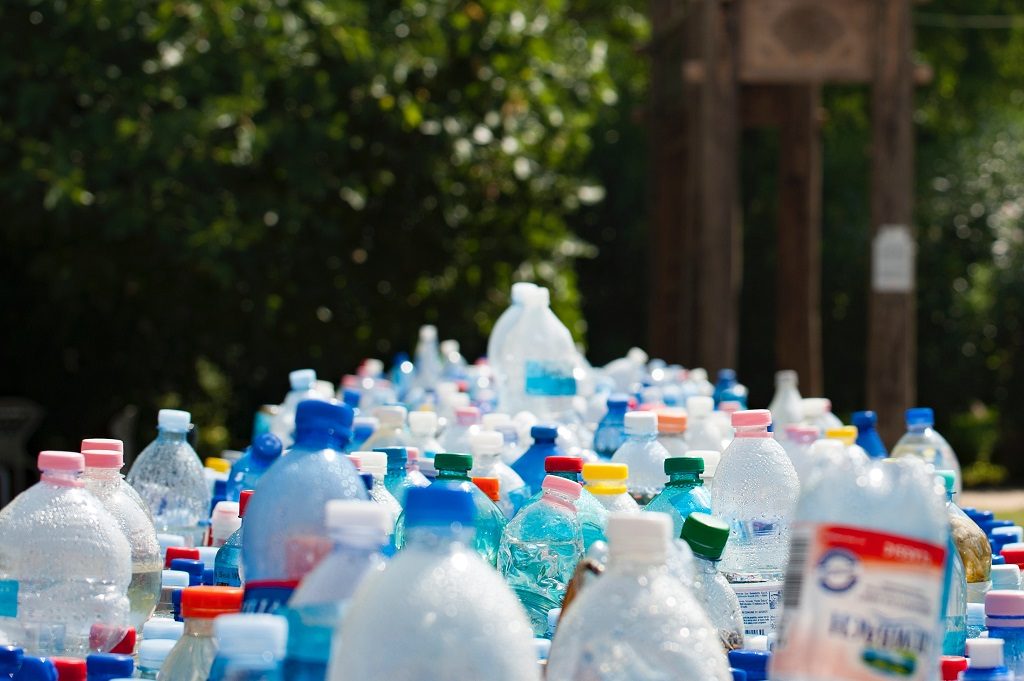
Staying hydrated is super important but buying plastic water bottles is definitely a no-no for the environment. Only about 23 percent of purchased water bottles are recycled in the US! The rest ends up in the ocean or landfills.
Choose a reusable glass water bottle instead
Grab a reusable glass water bottle and get your daily H2O the earth-friendly way.
View this post on InstagramA post shared by Wholesome Culture (@wholesomeculture) on
10. Plastic food containers
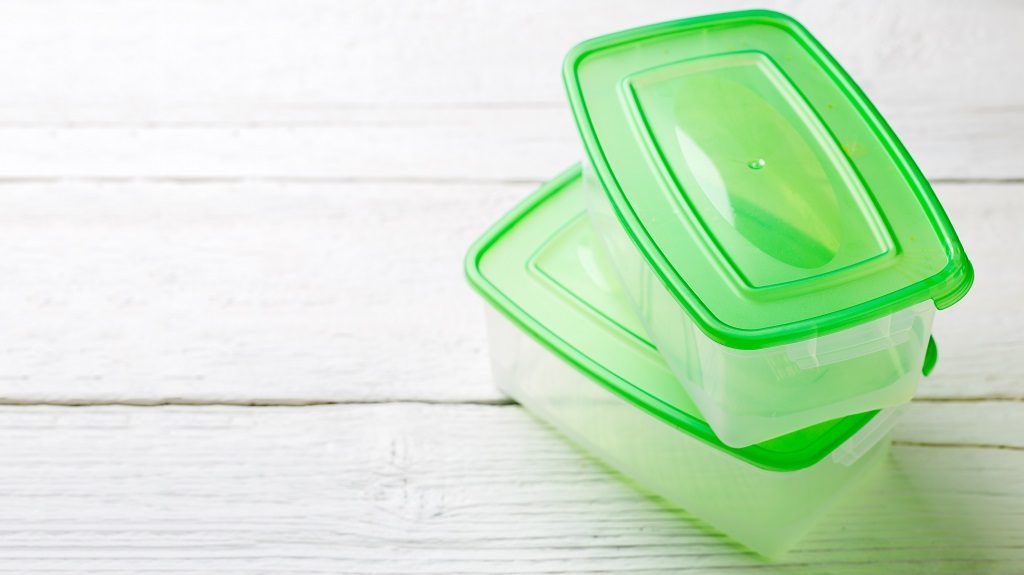
Even though plastic containers are reusable to a point, their production requires petrochemicals and wreaks havoc on the environment with the waste created during the process.
Choose glass food containers instead
Forget plastic Tupperware! Reusable glass containers are a lot more eco-friendly for your storage and meal prep needs.
We especially love this set from WeanGreen.
View this post on InstagramA post shared by Wean Green (@weangreen) on
11. Traditional feminine hygiene products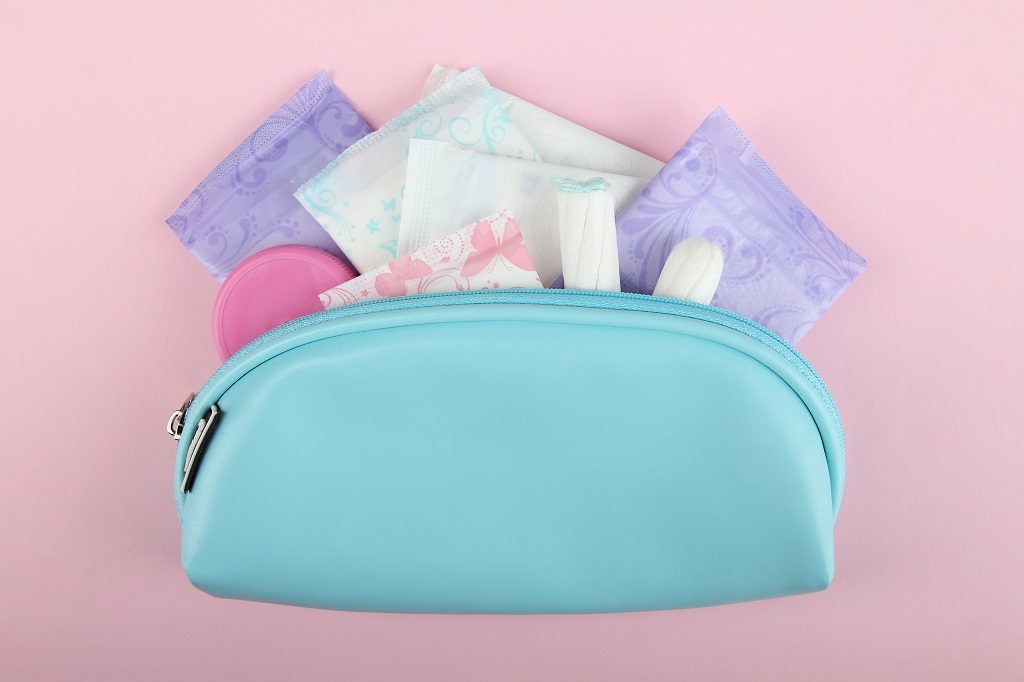
Did you know that approximately 12 billion tampons and pads end up in landfills annually?
Or that the plastic applicator used for many tampons contains a chemical called bisphenol A, which can leach into soil and waterways and causing disruption to the ecosystem?
Choose reusable feminine hygiene products instead
View this post on InstagramA post shared by The DivaCup (@thedivacup) on
By switching to an eco-friendly alternative such as a reusable cup or period-friendly underwear during that time of the month, you can make a big difference!
Will you be making a switch to more eco-friendly household items this year? If so, we’d love to know in the comments below!
If you want to learn about other ways to help protect the planet, don’t miss these other posts:
- Easy ways to conserve energy and be eco-friendly this winter
- Palm oil is destroying the planet – what you need to know to help
- 5 amazing ways being vegan will save the planet

